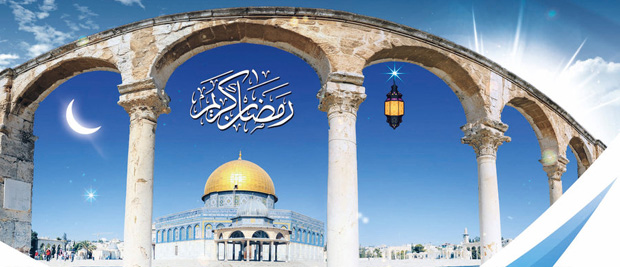
Many Arab Americans are Muslims who practice the faith of Islam. The Muslim calendar is a lunar calendar, which means dates for Muslim celebrations, such as Ramadan, are fluid in when they occur; holidays and celebrations are connected to events, such as the half moon or sickle moon, rather than fixed dates.

What is Ramadan?

Ramadan is considered one of the five pillars of the Islamic faith, and it is a month long commemoration of the revelation of the first tenets of the Qu'ran to the prophet Muhammad by the angel, Jibril.
Observation of Ramadan occurs in the ninth month of the Islamic calendar, commencing at the first sighting of the crescent moon to the next which means Ramadan can last anywhere from 29-30 days depending upon the cycle of the moon.
As a holy month, Ramadan is intended as a time of fasting, contemplation, and prayer with increased devotion applied to self-improvement and studying of the tenets in the Qu'ran.

Participants in Ramadan partake in a predawn meal known as suhur but do not eat for the rest of the day until the fast is broken by a nightly feast known as iftar. The purpose of fasting it to clear the heart, mind, and soul of earthly impurities and to provide a means of self discipline and looking within for a stronger connection to the tenets of Islam. But Ramadan is also a time when Muslims look outward by participating in increased acts of generosity and charity.
Ramadan is also a celebration of community. Each evening, when the fast is broken at iftar, family and friends gather together to share food and each other's company.


What is Eid-al-Fitr?
When the new crescent moon is visible, the end of Ramadan is marked for Muslims, and the celebration known as Eid or Eid-al-Fitr begins. Eid also emphasizes the importance of community in the Muslim tradition with Eid commencing after a charitable acts for the poor, as well as a congregational salaat or prayer that occurs in a group setting, such as this salaat for Arab Americans in Bensonhurst Park in Brooklyn, New York:
Eid has nuances in how the celebration proceeds after salaat, but food, treats, gifts, and camaraderie are shared traits during this exuberant celebration.
What is Hijri?

The first day of the Muslim lunar calendar year in the month of Muhurram also commemorates the journey of the prophet Muhammad from Mecca to Medina where Muhammad created the first Islamic community. The new year is observed in various ways, but is often a reflective time for Muslims who conduct prayers, honor the dead, and consider their own mortality with the passing of one year into the next.

Akhtar Iqbal provides the context for the importance of the Islamic New Year (Hijri or Al-Hijra)
in What is the Islamic New Year? A scholar of religion explains
from The Conversation: An Independent Source of Analysis from Academic Researchers.